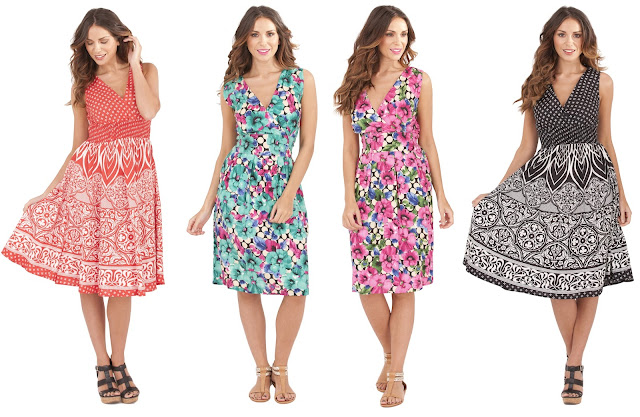How to Avoid Loss by Stocking Wholesale Dresses
Stocking Wholesale Dresses
is a common practice for boutique owners. They looking to offer a diverse range
of options to their customers while maximizing their profit potential. However,
without proper planning and strategy, there is a risk of incurring losses due
to poor inventory management and selection.
In this article, we
will explore effective ways to avoid loss by stocking wholesale dresses,
providing valuable insights and tips to help boutique owners make informed
decisions and optimize their inventory management.
Target Market
Conduct Research
Small Orders
Analyze Sales
Variety of Styles
Quality
Plan for Seasonal Change
Where to stock cheap wholesale dresses in the UK?
Wholesale Shopping and Zoom Fashion are reliable sources to
stock cheap dresses in the UK.
Understand Your Target Market
Before stocking Clothes
For Wholesale, it is crucial to have a deep understanding of your
target market. Analyze your customers' demographics, preferences, and
purchasing behaviors. This knowledge will help you select dresses that align
with their tastes and ensure a higher likelihood of sales.
Conduct Market Research
Stay updated with the latest fashion trends and market demand
by conducting thorough market research. Monitor fashion magazines, social media
platforms, and industry reports to identify the popular dress styles, colors,
and patterns. This information will guide your decision-making process when
selecting wholesale dresses. By stocking dresses that are in high demand, you
can minimize the risk of ending up with unsold inventory.
Start with Small Orders
To mitigate the risk of potential losses, it is advisable to
start with small orders when sourcing wholesale dresses. By testing the market
with a limited quantity, you can gauge the response and demand from your
customers. If a particular dress style performs well, you can reorder in larger
quantities, minimizing the risk of overstocking on unpopular items. Gradually
increasing your orders based on market demand will help you maintain a healthy
balance between inventory and sales.
Analyze Sales Data and Inventory Turnover
Regularly analyze your sales data and inventory turnover to
identify patterns and make data-driven decisions. Identify which dress styles
are selling well and which ones are experiencing slow or stagnant sales.
This analysis will help you make informed decisions when
restocking your inventory. By focusing on dresses with a high turnover rate,
you can ensure that your capital is invested in items that generate consistent
sales and minimize losses from slow-moving inventory.
Offer a Variety of Dress Styles
While it is important to identify popular dress styles, it is
equally crucial to offer a variety of options to cater to different customer
preferences. Stocking a diverse range of dress styles, including casual,
formal, cocktail, and evening wear, ensures that you have something for every
occasion and customer taste. This approach reduces the risk of losing potential
sales due to limited options and increases the chances of attracting a wider
customer base.
Quality Control and Inspection
Prioritize quality control and inspection when stocking
wholesale dresses. Ensure that the dresses meet your quality standards and are
free from defects or damages. Poor-quality dresses can lead to customer
dissatisfaction and negative reviews, resulting in loss of sales and damage to
your boutique's reputation. Establish a relationship with reliable wholesale
suppliers who prioritize quality and provide detailed product information to
make informed purchasing decisions.
Plan for Seasonal Changes
Seasonal changes significantly impact fashion trends and
customer preferences. Plan ahead for seasonal shifts by adjusting your
inventory accordingly. Avoid stocking dresses that are out of season, as they
are likely to remain unsold and result in losses.
Conclusion
If you
follow the given tips, you can avoid loss and turn your store into sale and
profit. You can follow the very same tips to stock Made In
Italy Clothing Wholesale to serve the very same purpose.





Comments
Post a Comment